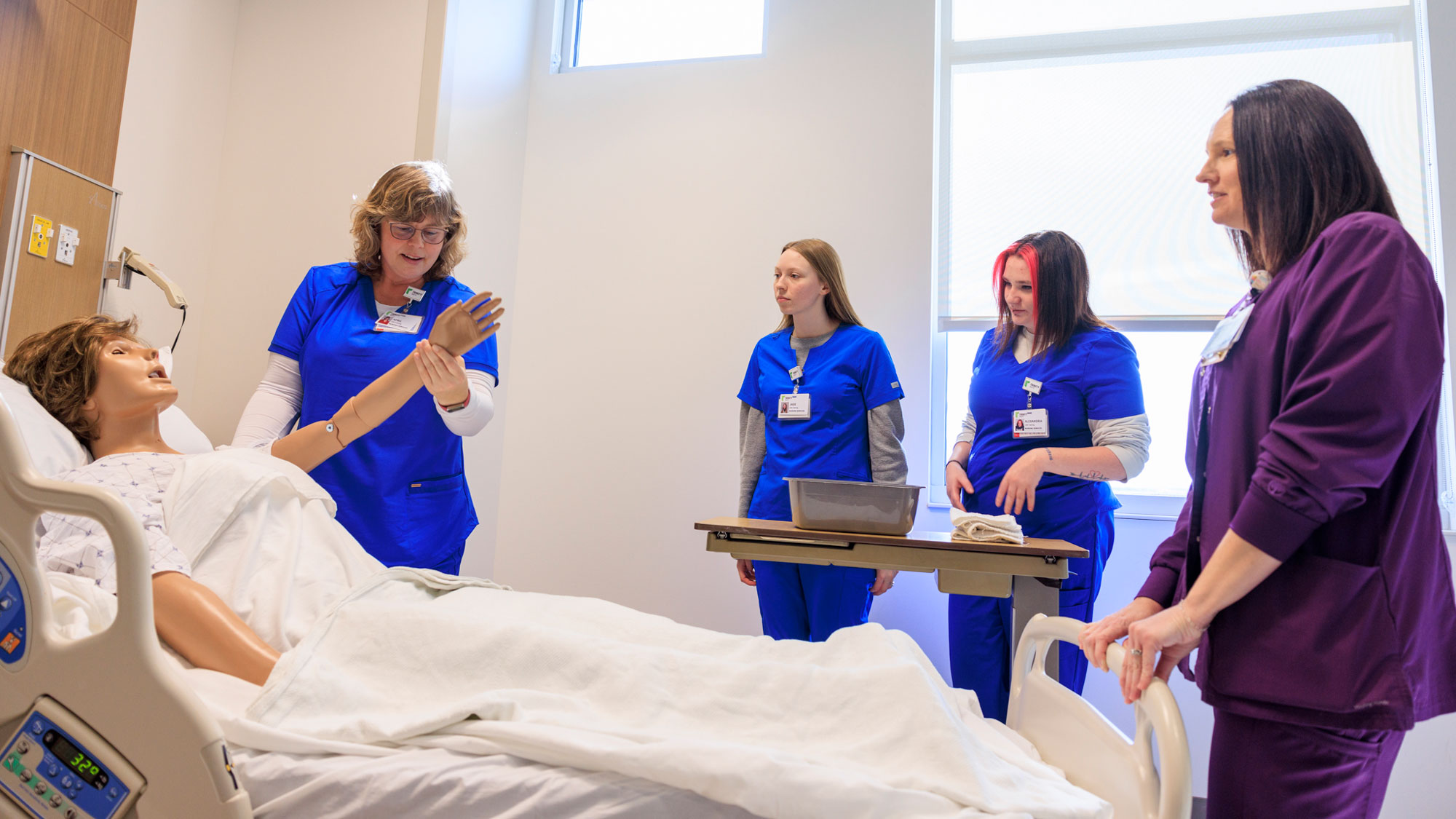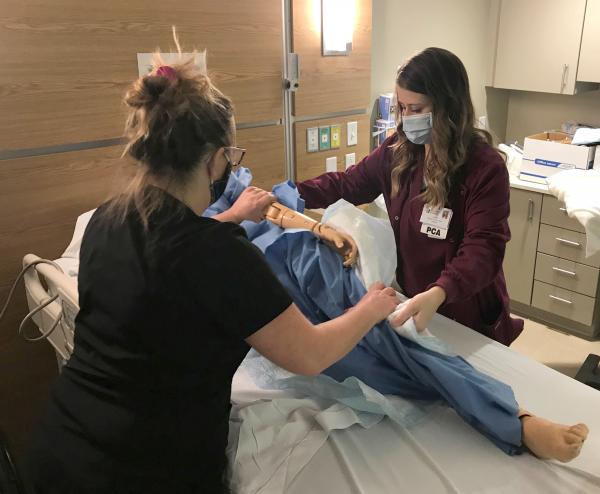How CNA Classes Build Hands-On Skills Healthcare Trainee Needs
Just How CNA Classes Can Help You Release a Successful Career in the Clinical Field
CNA classes function as a fundamental stepping rock for people desiring get in the clinical field. These programs impart crucial skills, including efficient interaction and individual care methods. Trainees take part in hands-on training, bridging theory with useful application. As the requirement for health care specialists expands, the role of a Certified Nursing Assistant becomes increasingly considerable. This raises inquiries concerning the different career paths and improvement chances that lie ahead for those who complete their training.

Recognizing the Function of a Certified Nursing Assistant
The function of a Certified Nursing Assistant (CNA) is integral to the health care system, functioning as an important web link in between patients and medical personnel. CNAs primarily assist people with daily activities such as showering, clothing, and consuming, ensuring their comfort and self-respect. They are typically the first point of call for people, providing crucial emotional assistance and companionship. In addition to individual care, CNAs are responsible for monitoring individuals' essential indications, reporting modifications in condition to nursing team, and preserving person records. Their tasks expand to ensuring tidiness in patient settings and assisting with movement. This function calls for a compassionate behavior, strong communication skills, and the ability to work effectively under stress. By facilitating a smooth workflow within healthcare settings, CNAs play a considerable component in improving the general individual experience and sustaining the broader medical team in delivering high-grade treatment.
Trick Abilities Obtained in CNA Classes
CNA classes gear up trainees with necessary skills needed for giving premium individual treatment. One of the main skills created is effective communication, allowing CNAs to engage compassionately with patients and clearly relay info to health care teams. Students additionally find out important reasoning, which helps in evaluating client requirements and responding suitably in various scenarios.
In addition, CNA programs emphasize individual care skills, encompassing help with day-to-day living activities such as bathing, clothing, and feeding - CNA Classes. Infection control methods are an additional crucial element, ensuring that pupils recognize exactly how to keep a risk-free setting for both people and themselves
Furthermore, pupils get knowledge in standard medical terms, helping with better understanding of healthcare practices. Time management skills are cultivated to aid CNAs focus on tasks efficiently. Generally, these key skills create the structure for an effective occupation in the medical area, preparing pupils to fulfill the diverse requirements of people.

The Advantages of Hands-On Training
Gaining practical experience with hands-on training is necessary for striving CNAs, as it bridges the void in between theoretical expertise and real-world application. This immersive knowing approach makes it possible for students to develop important abilities required for patient treatment, such as reliable communication, empathy, and technological capabilities. Involving in real-life scenarios enables trainees to understand the dynamics of a health care environment, promoting self-confidence in their capabilities.
Hands-on training aids students end up being familiar with necessary devices and treatments, guaranteeing they are well-prepared for the obstacles of the task. It also provides possibilities to get immediate comments from teachers, boosting the learning experience. By working directly with individuals under supervision, striving CNAs can develop their observational skills and learn to react to different circumstances properly. Inevitably, hands-on training furnishes these future healthcare professionals with the competence and assurance needed to prosper in their duties.
Profession Opportunities After Coming To Be a CNA
Various career chances wait for individuals who complete their CNA training, opening up doors to various duties in the medical care field. Certified Nursing Assistants (CNAs) are necessary members of the healthcare group, check this providing direct patient care in settings such as health centers, taking care of homes, and helped living centers - CNA Classes. Their duties can include assisting with daily living activities, monitoring crucial indicators, and providing emotional support to individuals
Beyond typical settings, CNAs may additionally find opportunities in specialized areas, such as recovery facilities or home healthcare. In addition, some may our website change into duties in management assistance or patient advocacy, leveraging their direct experience with patients. The need for CNAs remains to grow, driven by an aging populace and a boosted emphasis on high quality client treatment. This high demand assurances that individuals entering the area have a selection of options to seek, making it an attractive entry factor right into a rewarding profession in healthcare.
Paths for Development in the Health Care Field
Advancement in the healthcare area provides several pathways for individuals looking for to improve their occupations past the function of a Certified Nursing Assistant. After getting experience, lots of CNAs opt to pursue more education and certifications, such as coming to be a Licensed Practical Registered Nurse (LPN) or Registered Registered Nurse (REGISTERED NURSE) This change typically includes registering in linking programs that acknowledge their present abilities.
Additionally, specialized accreditations in areas like geriatrics or pediatric medicines can open doors to specific niche duties, enhancing both task complete satisfaction and wage capacity. CNAs may additionally check out management positions, such as wellness care monitoring or client care coordination, which use their frontline experience in a various capability.
Additionally, continuous professional advancement with workshops and seminars can maintain CNAs upgraded on market standards, making them much more affordable candidates for improvement. The healthcare area offers different methods for growth, making it possible for CNAs to form their job trajectories successfully.
Frequently Asked Concerns

How Much Time Do CNA Classes Normally Require To Full?
CNA classes normally take in between 4 to twelve weeks to complete, depending on the program structure. Aspects such as program intensity, scheduling, and the institution's educational program style can influence the overall duration of training.
What Is the Expense of CNA Training Programs?
The cost of CNA training programs varies extensively, usually ranging from $300 to $2,000. Factors affecting this cost consist of area, program size, and whether the training is provided through area colleges or exclusive institutions.
Are Online CNA Classes Available?
On-line CNA classes are indeed readily available, supplying versatility for students. Lots of institutions offer virtual training, making it possible for individuals to finish coursework at their very own rate while still satisfying the required needs for certification in nursing assistance.
What Is the Certification Test Process Like?
The qualification exam process typically includes a written examination evaluating expertise and a skills presentation. Prospects have to pass go both parts to come to be licensed, guaranteeing they satisfy the essential expertises required for nursing assistant roles.
Do I Required Previous Healthcare Experience to Enlist in CNA Classes?
Prior healthcare experience is not a requirement for enrolling in CNA classes. People from various histories can get in the program, as it is made to give thorough training and understanding essential for effective qualification and technique.